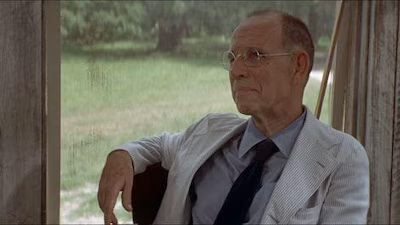Irving Ravetch
About
Biography
Filmography
Family & Companions
Biography
Irving Ravetch began his Hollywood career with a notorious flop -- co-writing the screenplay for "Living in a Big Way" in which Gene Kelly returns from World War II and tries to make a go of it with his war bride. Yet, Ravetch went on to prosper, writing and occasionally producing some of the more heralded movies of the past 40 years, including "Hud" (1963) and "Norma Rae" (1979), both of which he co-wrote with his wife, Harriet Frank, Jr., and both of which earned Academy Award nominations. Besides working with Gregory LaCava on "Living in a Big Way" for MGM in 1947, Ravetch also wrote "The Outriders" for MGM in 1950, a standard Civil War story. His output in the 50s was nearly non-existent until he teamed with his wife in 1958, co-writing "The Long, Hot Summer" based on works by William Faulkner. This also marked their first collaboration with director Martin Ritt. The success of that film, moved Ravetch and Frank to co-write "The Sound and the Fury" (1959), also based on a Faulkner novel. The married duo adapted the William Inge play "The Dark at the Top of the Stairs" for the big screen in 1960. In 1963, Ravetch co-produced "Hud" with its director, Marty Ritt, and co-wrote the screenplay with Frank. The story of moral degradation in the modern west, the film was a comeback of sorts for Ritt, who had been blacklisted, and actor Melvyn Douglas, who also had been away from the screen in the 50s due to blacklisting. It won an Academy Award for Patricia Neal. The collaboration between Ritt, Ravetch and Frank continued in 1967 with "Hombre," which Ritt and Ravetch produced, Ritt directed, and Ravetch and Frank wrote. Like "Hud," it starred Paul Newman, this time as a man raised by Native Americans trying to survive in the white man's world. Ravetch and Frank wrote "The Reivers" in 1969, which became a hit for Steve McQueen and was, again, based on a novel by Faulkner. Ravetch produced the film as well. Ravetch and Frank adapted Pat Conroy's autobiographical "Conrack" as a vehicle for John Voight in 1974, as a white teacher on an all-black gullah island trying to help them have a future. "Conrack" was again directed by Ritt, as was "Norma Rae," which starred Sally Field in her first Oscar-winning performance as a Southern woman who finds her inner resources through working for a union. Ritt, Field, Ravetch and Frank joined together again in 1985 for "Murphy's Romance," and Ravetch and Frank wrote "Stanley and Iris" for Ritt to direct in 1990, starring Jane Fonda as a woman teaching Robert De Niro how to read.
Filmography
Cast (Feature Film)
Writer (Feature Film)
Producer (Feature Film)
Production Companies (Feature Film)
Writer (TV Mini-Series)
Life Events
1947
Began Hollywood career by co-writing "Living in a Big Way" for MGM
1955
Began collaboration with wife Harriet Frank, Jr. by co-writing the story for the Randolph Scott western "Ten Wanted Men"
1958
First screenwriting collaboration with wife was on "The Long, Hot Summer"; also first collaboration with Martin Ritt, who directed
1959
Collaborated with Martin Ritt (director) and wife Harriet Frank Jr. (co-writer) for "The Sound and the Fury"
1960
Co-scripted "Home from the Hill," directed by Vincente Minnelli and starring Robert Mitchum
1960
Adapted Inge's play "The Dark at the Top of the Stairs" into a film directed by Delbert Mann
1963
Co-produced (with Martin Ritt) and co-wrote (with Frank) "Hud," a drama set in modern Texas and starring Paul Newman; shared an Oscar nomination with his wife for the screenplay
1969
Produced "The Reivers"; also adapted William Faulkner's novel with Frank
1972
Co-penned " The Cowboys," a western starring John Wayne
1974
Adapted Giles Tippette's novel The Bank Robber into the film "The Spikes Gang"
1979
Earned an Academy Award nomination for co-writing (with Frank) the Martin Ritt directed "Norma Rae"
1985
Co-wrote (with Frank) "Murphy's Law," which was directed by Martin Ritt
1990
Final screen collaboration with Ritt and Frank "Stanley and Iris"
Videos
Movie Clip












Trailer







Family
Companions












